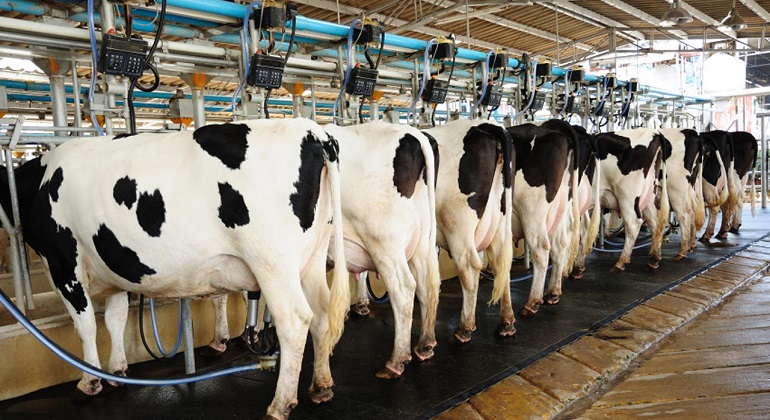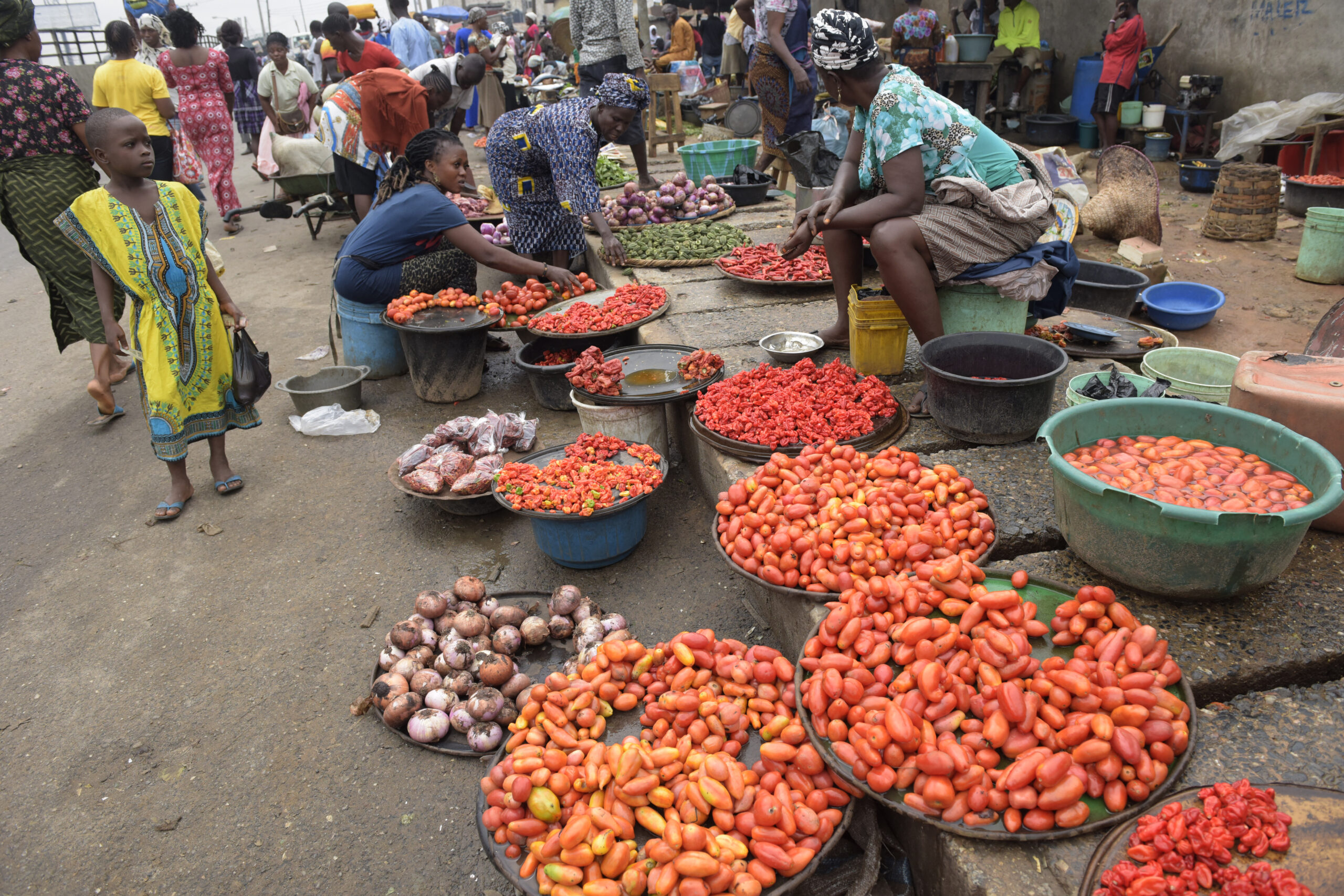
High prices of foodstuffs in the country have been attributed to poor agricultural productivity in 2020, as the sector was marred by COVID-19 pandemic, climate-induced floods and drought, as well as widespread insecurity, as identified by specialists.
The National President of the All Farmers Association of Nigeria (AFAN), Mr Ibrahim Kabir, explained that the pandemic, which hit Nigeria hard when farmers, input dealers, financial institutions and farmers’ associations were getting set to mobilise resources for cultivation, truncated farming activities.
In April 2020, it will be recalled, there was a nationwide lockdown following the index cases of COVID-19 in Lagos State and Abuja, and the restriction paralysed not only movement of farm labour, inputs and other resources, but also all commercial activities in the country.
Recyclable seeds were eaten up by resource-poor farmers, and competition over food crops between animal and man aggravated the situation, according to the poultry association.
The National President of the Poultry Association of Nigeria (PAN), Mr Ezekiel Ibrahim Mam, explained that food crops like sorghum, maize and soy beans are competitive, produced in lower quantity than demand and restrictions during the lockdown made the competition to become intense, causing food inflation across the country.
Similarly, crop cultivation in about four geo-political zones of the south and north-central were temporarily hampered as ‘August break’ extended from July to August 31, 2020. This was far beyond the 25-day period predicted by the Nigerian Meteorological Agency (NiMet), and caused great damage to cultivated hectares of food crops.
In the 2020 Seasonal Rainfall Prediction (SRP) of NiMet, it predicted that “Severe dry spell that may last 10 to 18 days is predicted over Niger, Bauchi, Jigawa, Sokoto, Zamfara, Katsina, Kano, Kebbi, Yobe and Borno in the month of June.”
The agency also said early in the year that moderate dry spell that might last 8 to 12 days was expected around Yelwa, Bida, Minna, Zaria, Funtua, Lafia, Bauchi, Abuja, Gombe and Yola in June 2020.
‘Little Dry Season (LDS)’ is a seasonal weather phenomenon common to the south-western part of Nigeria. It is characterised by a decline in both the frequency and amount of daily rainfalls for a number of weeks halfway through the rainy season, according to James Adejuwon and Theophilius Odekunle, who researched about the climate condition.
It predicted that “The 2020 LDS season is likely to start as early as 18th of July in Abeokuta and as late as August 4 along the coast of the southwest. However, we expect very mild effect over places like Benin, Lokoja and Enugu.”
Contrary to the predictions, the break started early July and extended to the end of August. Mr Kolawole Adeniji, a commercial farmer and Managing Director of NIJI Foods in Oke-Ogun area of Oyo State, explained how insecurity of farms and farmers in the country cost him over N500,000 monthly. This, he added, was to ensure his safety, and protection of farm hands and investments from destruction by herders.
Apart from farm destruction, he said, big farmers were targeted, kidnapped, maimed and sometime killed. Farmers in the north were displaced, with over 75,000 farming households still staying at displaced people’s camps when they are supposed to be on the farm. The situation is getting worse than 2020 now, as they dare not make attempt to cultivate farms, especially in the Northeastern zone.
On failure of rain-fed farming in 2020, he said maize and cassava, as well as rice stunted for lack of rainfalls. Based on the challenge, he foresaw that there could be scarcity of food in 2021, urging that state governments in the southwestern region should take food production higher by providing irrigation facilities.
Floods ravaged farms in Kaduna, Kogi, Taraba, Bauchi, Kebbi and some other northern states, which submerged cultivated farmlands and wiped away food crops.
Prof. Kolawole Adebayo, an extension specialist at the Federal University of Agriculture, Abeokuta (FUNAAB), said rain failure in 2020, coupled with the limitations placed on farming activities by the COVID-19 lockdown, were ominous signs of possible food shortages this year.
The way forward, he added, is that discerning governments at all levels should fast-track farm infrastructure and stop paying lip service to the agribusiness sector.
“Easy to adopt farm level irrigation systems should be promoted actively by the extension and advisory services during the dry season to rapidly produce arable crops to argument the crop failures. Food storage systems enabling the government and local communities to procure food items during the harvest periods should start now,” he said.
Also, he advocated improved security network so that farm workers and support services could begin early to prevent a repeat of 2020.
A researcher at International Institute of Tropical Agriculture (IITA), Dr Richardson Okechukwu suggested that Nigeria’s agriculture needs more innovative technologies to withstand challenges of climate change.
“The government needs to invest in alternative irrigation by making use of natural water bodies, creating dams, irrigation canals and encouraging drip systems for certain crops and sprinkler systems for some others,” he advised.
Similarly, Assistant Director (Commercial Agriculture & Training), Lower Niger River Basin Development Authority, Ilorin, Dr Olabisi Awoniyi, confirmed that rainfall patterns affected farming in the north-central zones in 2020.
“Climate change is really having adverse effect on agricultural production in Nigeria. The recent effect on agriculture is the prolonged August break. It was for almost two months without rains in the South-west and North-central zones. This definitely affected food production,” he said.
A professor of Agricultural Economics and Policy and president of Farm and Infrastructures Foundation, Gbolagade Babalola Ayoola, said rural infrastructure approach holds the key, with a focus on production, storage, processing and marketing infrastructure.
“The only answer in the medium to long term is heavy investments in irrigation services to provide water at small, medium and large scale farmers. In the short term, the government needs to respect, protect and fulfill people’s right to food, and to deliver services that enhance productivity and build resilience of people to climate change,” he said.
A professor of Agricultural Economics at Obafemi Awolowo University, Ile-Ife, Funso Sonaiya, said the question of moving from rain-fed agriculture is very important, and the first solution is exploring irrigation.
He said: “Nigeria has very many dams, but most of them are not being used effectively for irrigation. So, there is a need to develop irrigation technologies in Nigeria.”






